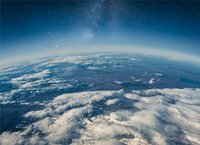The HAWC satellite system — which stands for High-altitude, Aerosol, Water vapour and Clouds — is Canada’s contribution to NASA’s international Atmosphere Observing System (AOS), a multi-satellite initiative designed to provide critical atmospheric measurements for climate change projections. Currently slated to launch in 2028 and 2031, HAWC will use three innovative sensors to deliver the critical data needed to predict extreme weather, monitor for natural disasters and model climate-change impacts, especially in the Arctic.
“Canada has always played a key role in international space programs, helping to find solutions to global challenges. Today's more than $200 million announcement builds on those successes with our participation in NASA's AOS program. It also speaks to our commitment to harnessing science and research to address climate change, natural disasters, and other issues that are important to Canadians,” said François-Philippe Champagne, Canada’s minister of innovation, science and industry in a release.
“So many scientists and institutions have come together across the country, to pool their expertise and resources in support of this important and exciting mission,” said the University of Toronto’s Kaley Walker, HAWC co-lead and professor in the Department of Physics in the Faculty of Arts & Science. “The data we will capture through this satellite mission will help us better understand clouds, aerosols and their interactions – a major source of uncertainty in climate modelling — and strengthen our predictions.”
New and improved data from HAWC will help scientists and policymakers make evidence-based decisions to combat climate change and help Canada and regions around the world prepare for extreme events such as winter storms, wildfire smoke plumes, heavy precipitation and volcanic eruptions, Walker said.
Read the full story in Arts and Science News here:
https://www.artsci.utoronto.ca/news/national-climate-science-satellite-mission-co-led-u-t
CTV News:
https://www.ctvnews.ca/politics/federal-government-announces-funding-for-earth-observation-satellites-1.6114095
Space News:
https://spacenews.com/canada-to-contribute-satellite-and-instruments-to-nasa-led-earth-science-mission/

